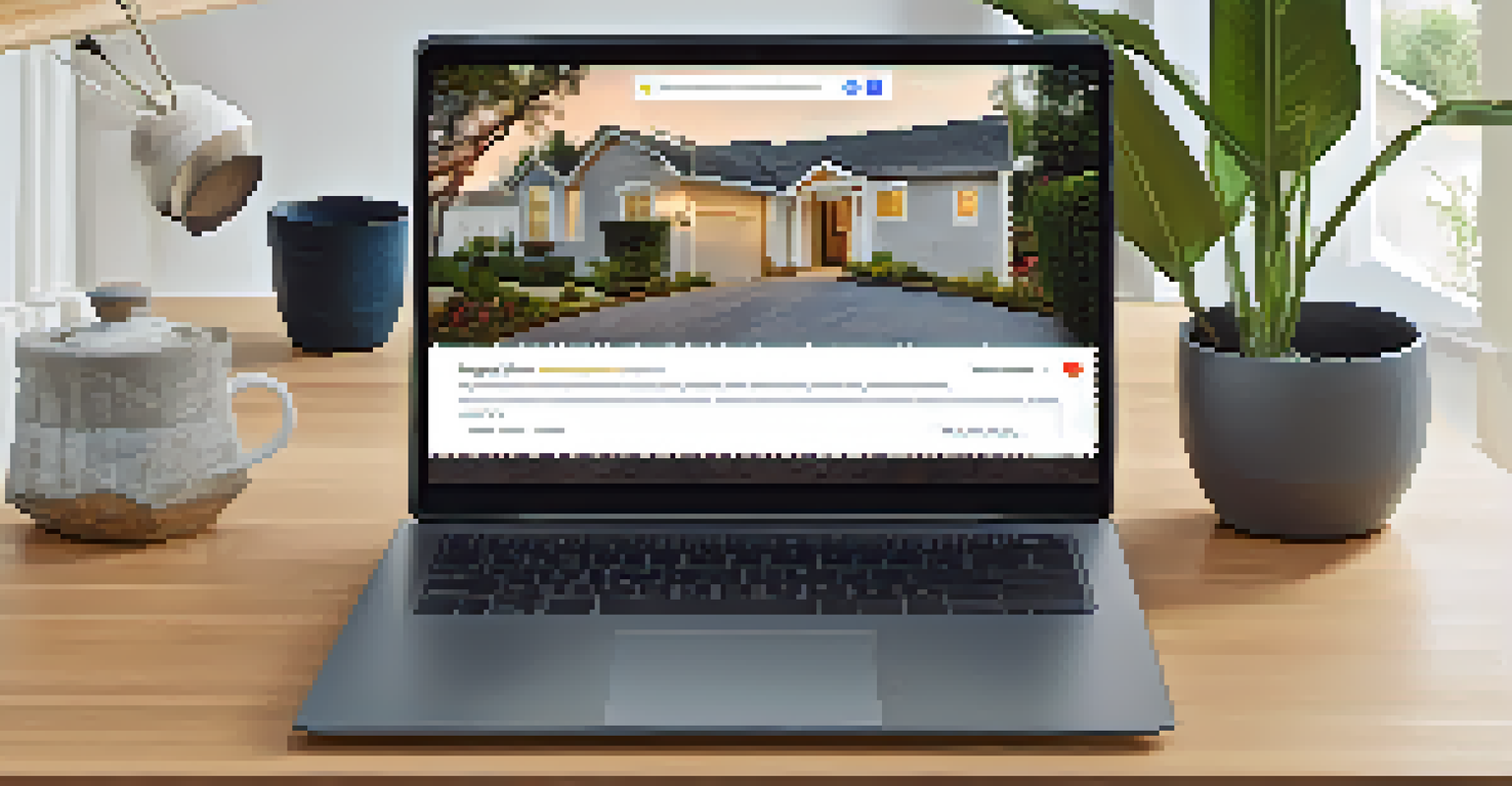Leveraging Local SEO for Real Estate Marketing Success

Understanding Local SEO and Its Importance for Realtors
Local SEO is the practice of optimizing your online presence to attract more business from relevant local searches. For real estate agents, this means being found by potential buyers and sellers in your specific geographic area. Given the competitive nature of the real estate market, having a solid local SEO strategy can make a significant difference in your visibility and success.
In the world of real estate, your online presence is your calling card.
By focusing on local SEO, you can enhance your chances of appearing in search results when users look for properties in your area. It’s not just about being found; it’s about being found by the right people at the right time. For instance, if someone types 'homes for sale in [Your City]', you want your listings to pop up right at the top.
Ultimately, local SEO helps you build a strong online presence that resonates with your community. It’s about connecting with potential clients who are not just browsing but are ready to make a real estate decision. This makes it an essential component of a successful real estate marketing strategy.
Optimizing Your Google My Business Listing
One of the first steps in local SEO is claiming and optimizing your Google My Business (GMB) listing. This free tool allows you to manage how your business appears on Google, including search results and maps. By providing accurate information about your business hours, address, and services, you can improve your chances of appearing in local search results.

In addition to basic information, adding high-quality photos of your properties and team can significantly enhance your listing. Visuals play a crucial role in attracting potential clients. Moreover, encourage satisfied clients to leave positive reviews, as they can greatly influence prospective buyers' decisions.
Boost Visibility with Local SEO
Optimizing your online presence for local searches is crucial for realtors to connect with potential clients in their geographic area.
Regularly updating your GMB listing with posts about new listings, open houses, or real estate tips can keep your audience engaged. This not only helps maintain your visibility but also positions you as an active participant in the local real estate market.
Utilizing Local Keywords in Your Content
Incorporating local keywords into your website content is a vital part of any local SEO strategy. These keywords can range from specific neighborhoods to broader terms like 'real estate in [City]'. By strategically using these keywords throughout your website, you can help search engines understand your relevance to local queries.
SEO is not about optimizing for search engines, it’s about optimizing for people.
For instance, if you specialize in a particular neighborhood, writing blog posts or property descriptions that include phrases like 'best family homes in [Neighborhood]' can help attract targeted traffic. This not only improves your SEO but also builds trust with potential clients who are looking for expertise in their area.
Remember, the goal is to create valuable content that answers the questions and needs of your audience. By providing insights and information that resonate with local buyers and sellers, you establish yourself as a go-to resource in the real estate market.
Building Local Citations and Backlinks
Local citations refer to any online mention of your business’s name, address, and phone number (NAP). Consistency is key here, as discrepancies can confuse potential clients and search engines alike. Listing your business in local directories, such as Yelp or Yellow Pages, can help improve your local SEO.
Additionally, earning backlinks from reputable local websites can significantly boost your SEO efforts. Collaborating with local businesses, sponsoring community events, or participating in local blogs can create opportunities for backlinks. These connections not only enhance your credibility but also help you reach a wider audience.
Maximize Google My Business
Claiming and optimizing your Google My Business listing enhances your visibility in local searches and helps attract more clients.
Think of backlinks as endorsements from other websites, signaling to search engines that you are a trusted source of information. The more quality backlinks you have, the better your chances of ranking higher in local search results.
Creating Location-Specific Landing Pages
Location-specific landing pages can be a game-changer for your local SEO strategy. These pages allow you to target specific neighborhoods or areas where you operate, making it easier for potential clients to find relevant information. Each page should include localized content that speaks directly to the audience in that area.
For example, if you cover multiple neighborhoods, create dedicated pages for each one, highlighting local amenities, schools, and market trends. This not only helps with SEO but also provides valuable insights for potential buyers and sellers looking to make informed decisions.
Moreover, incorporating calls-to-action (CTAs) on these pages can guide visitors toward taking the next step, whether it's contacting you for more information or signing up for a newsletter. A well-structured landing page can significantly improve your conversion rates.
Leveraging Social Media for Local Engagement
Social media platforms are powerful tools for enhancing your local SEO efforts. By sharing engaging content related to your local market, such as property listings, community events, or real estate tips, you can attract and engage your audience. Social media also allows you to showcase your personality and connect with potential clients on a more personal level.
Furthermore, using location tags in your posts can enhance visibility among local users. When you share a new property or a local event, tagging your location helps people in that area discover your content. This can foster a sense of community and increase the chances of turning followers into clients.
Engage with Local Keywords
Incorporating local keywords into your content helps search engines understand your relevance to local queries, drawing in targeted traffic.
Don’t forget to engage with your audience by responding to comments and messages promptly. This interaction not only builds trust but also boosts your brand's reputation in the local community.
Measuring the Success of Your Local SEO Efforts
Once you've implemented your local SEO strategy, it’s crucial to measure its effectiveness. Tools like Google Analytics and Google Search Console can provide valuable insights into your website traffic, user behavior, and search queries. Tracking these metrics helps you understand what’s working and what needs adjustment.
For instance, if you notice an increase in traffic from a specific neighborhood page, it might be worth investing more effort into that area. Conversely, if certain keywords aren't performing well, you can refine your content strategy accordingly. Continual analysis allows you to adapt your approach and maximize your results.

Additionally, keep an eye on your GMB insights to see how many people are viewing and interacting with your listing. This data can guide your future marketing efforts and help you stay competitive in the local market.